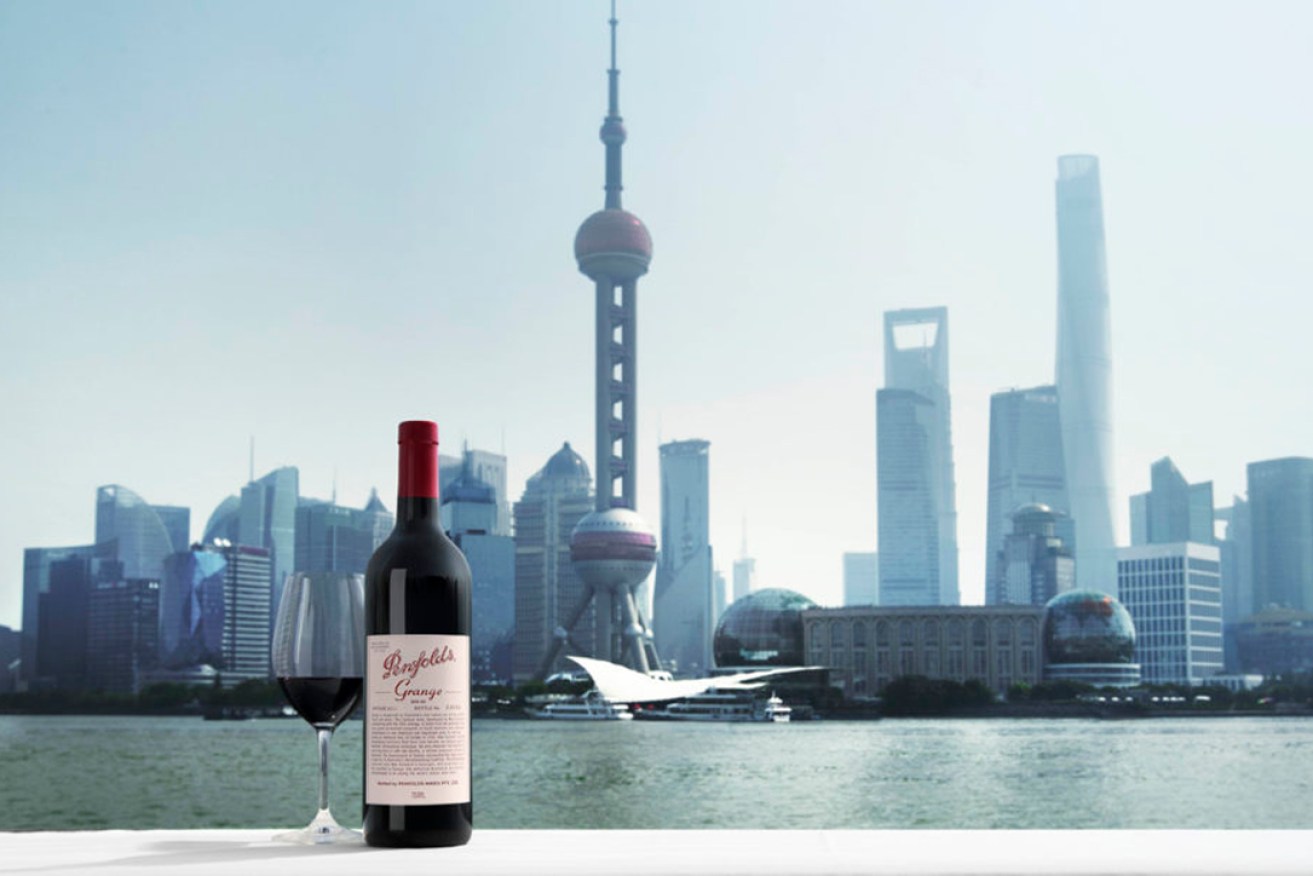SA wine icon prepares for China comeback
Treasury Wine Estates is preparing to relaunch its flagship Penfolds brand in China as the country considers easing or lifting crippling tariffs slapped on Australian wine exports three years ago.

Picture: Treasury Wine Estates
Prime Minister Anthony Albanese said on the weekend that Australia and China had agreed to suspend their World Trade Organisation dispute while Beijing held an “expedited review” of punitive duties imposed on Australian wine exports in 2020.
If the sanctions are not removed at the end of the five-month review, Australia will take up the dispute again.
Beijing imposed punitive trade sanctions on $20 billion worth of Australian products at the height of a diplomatic feud with the former Coalition Government, smashing wine, barley, timber and seafood exporters.
The tariff on wine into Australia’s previously top export market devastated the industry, with China falling from its previous number one spot to 14th in the first year, while exports dropped by 30 per cent or $860 million.
South Australia’s wine exports to China evaporated by $88 million and in the year to June 2023 were worth only $4.9 million.
A report was handed down by the WTO into Australia’s complaint about Beijing’s tariffs, and is understood to have been given to both sides.
“We’re very confident that this will result in, once again, Australian wine – a great product – being able to go to China free of the tariffs which have been imposed,” Albanese said.
Following news of the agreement, TWE, which owns SA brands including Penfold, Wynns and Wolf Blass, told the Australian Stock Exchange on Monday morning that it was “well placed to rebuild its business in China, should tariffs be removed at the end of this review period”.
The TWE statement said it would rebuild distribution of Penfolds in China and invest in sales and marketing to regain its previous footprint, while pursuing a ‘multi-country of origin portfolio growth strategy’ led by its French, US and Chinese portfolios.
TWE CEO Tim Ford said the measures would be “implemented sustainably and with the aim of growing the business in China, but not at the expense of the long-term growth opportunity in other key markets”.
“It’s great to see an agreement for an expedited pathway forward to allow our Australian brands and wine to be sold in the Chinese market,” Ford said.
“There are only positives to come out of a favourable review for the Chinese consumer, customers and the wine category, for the Australian wine industry and for TWE.
“Both governments have worked constructively to achieve this outcome and we now look forward to a new era of positive engagement that ultimately will build a strong and growing China wine category should the review see the removal of these tariffs.”
Albanese confirmed at the weekend that he will visit China and meet its President and Premier next month, with China’s commerce ministry announcing it had reached a deal with Australia on a “proper settlement” of WTO disputes over wine and wind towers.
China’s ambassador to Australia Xiao Qian just days earlier said he was “optimistic” the trade dispute would be positively resolved in the “coming weeks or months”.
Australian Grape and Wine chief executive Lee McLean described the tariff review breakthrough as a “really positive step”.
Australian wine exports to China at their peak were valued at $1.2 billion before the tariffs but had plunged to only $8 million in June.
“The diversification effort needs to continue … but we absolutely also need to look at opportunities in China as well,” McLean said.
“It’s one market that is going to be important to us.”
Opposition foreign affairs spokesman Simon Birmingham said the tariffs were never justified and amounted to economic coercion.
“I am confident that draft report would have found that these tariffs were an act against the rules of the WTO, they are clearly in breach of the China-Australia Free Trade Agreement … and so they should not just be reviewed, but they should be removed,” he said.
South Australian Premier Peter Malinauskas said his government had “genuine and honest” discussions with Beijing about the importance of the trade dispute for his state during his visit in September.
Australian-China relations have steadily thawed since the Albanese government came to power, with China lifting tariffs on Australian barley in August.
The latest breakthrough comes after China earlier in October freed Australian journalist Cheng Lei, who had been detained in Beijing for three years after being accused of national security-related offences.
Albanese denied the deal had been achieved as part of a “transactional” arrangement, saying that Australia has engaged with China on a range of issues.
Beijing had reportedly been demanding Australia drop its anti-dumping tariffs on Chinese steel as part of a quid pro quo package deal.
-with AAP




